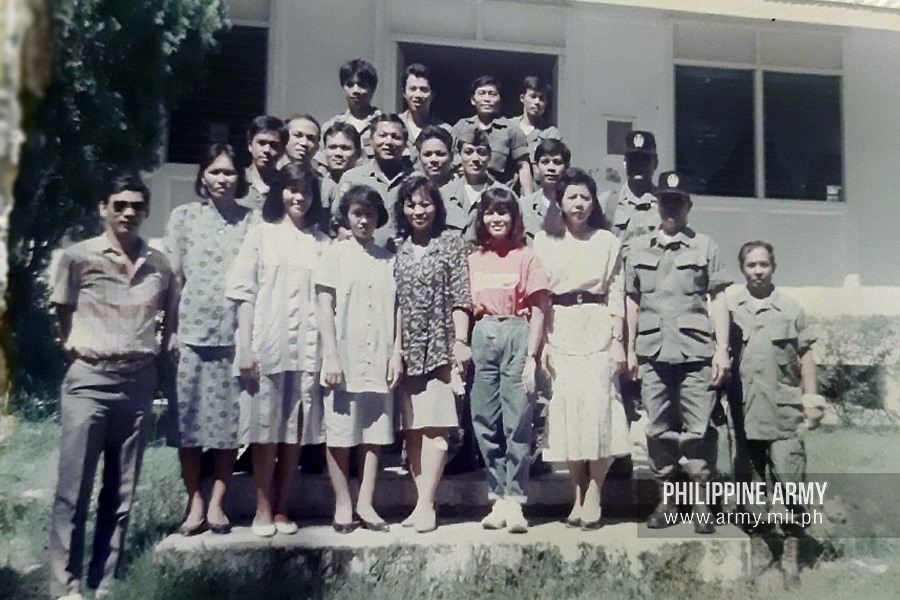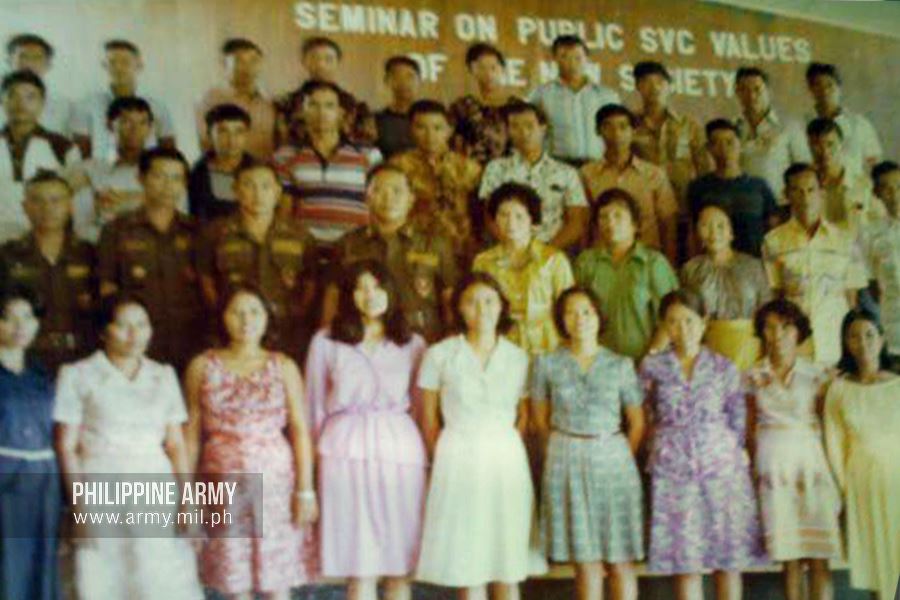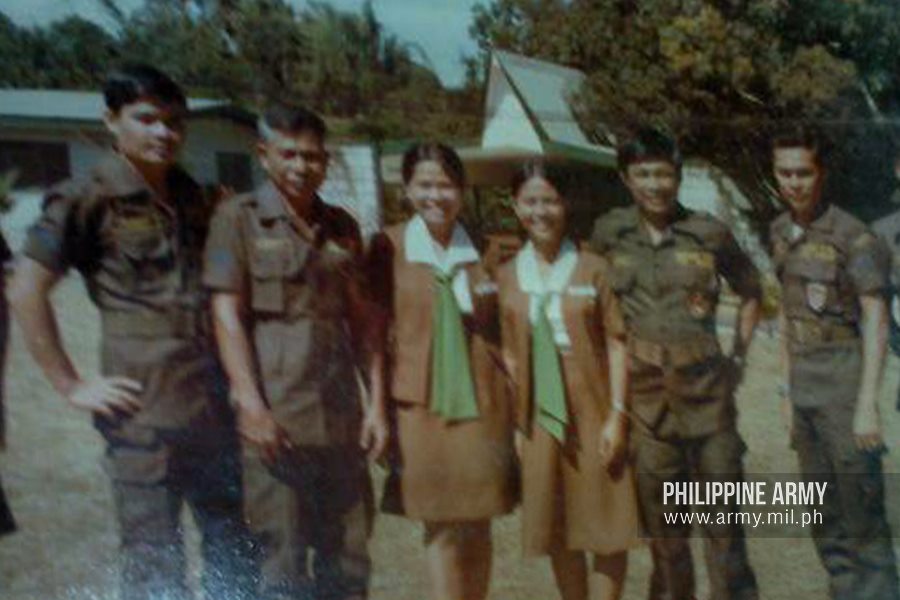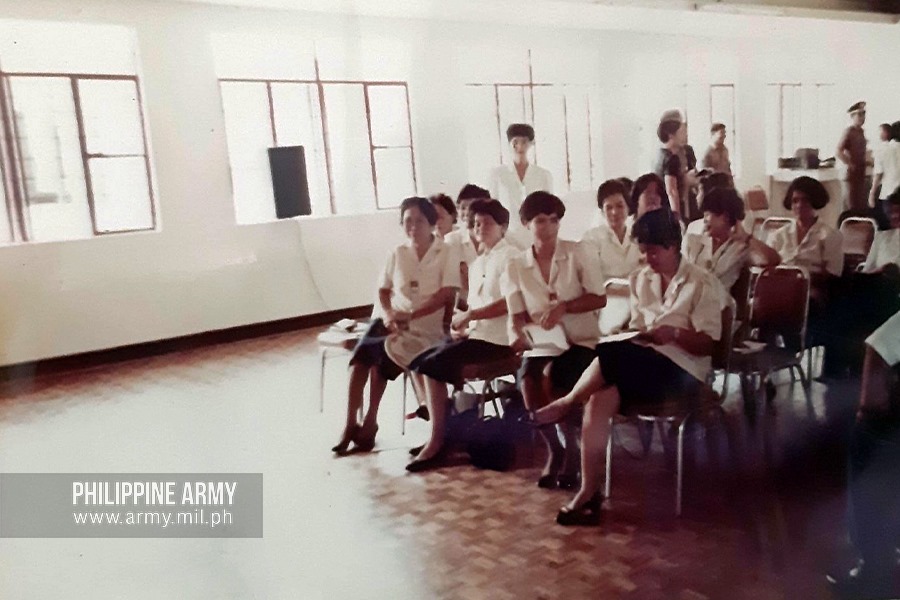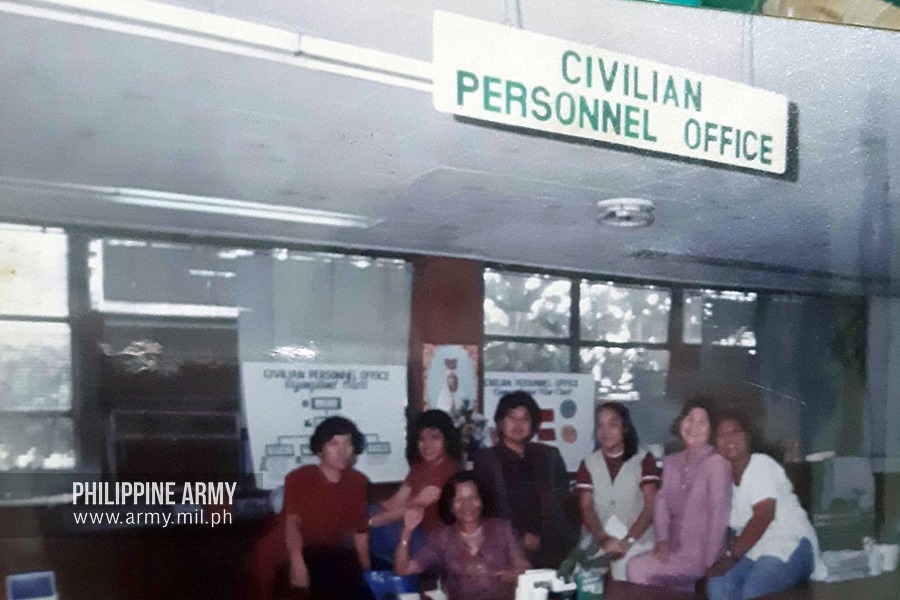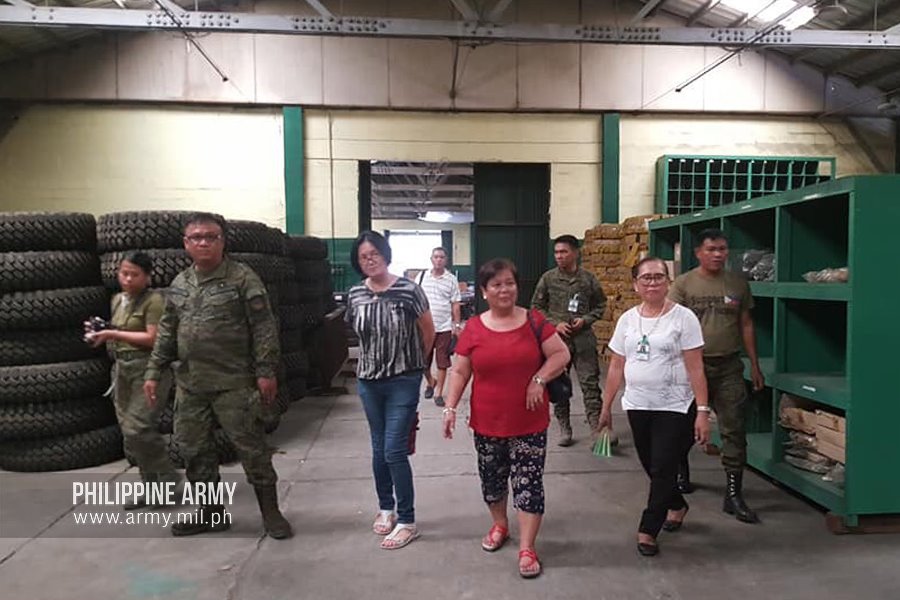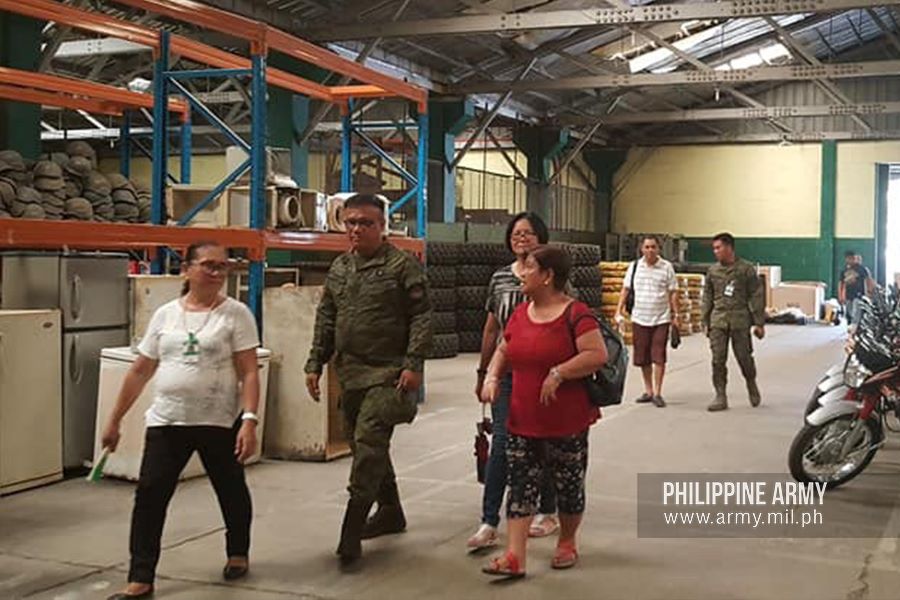Military service requires soldiers to take on posts regardless of time and location. As soldiers come and go through the doors of Philippine Army units and offices, the challenge to maintain the high standards of the command capabilities are left in the hands of individuals whose weapons are neither of guns nor knives.
Known as the Army’s “Institutional Memory”, the Philippine Army Civilian Human Resource (Civ HR) are the persons who work on a paper-filled desk at the finance office, on a drafting table at the headquarters support group, in an exhibit at the museum, or even in a patient ward at the Army hospital.
The concept of Civ HR dates back around the 1890s when the early Filipino combat heroes were backed by a civilian workforce. For instance, wounded and ill Katipuneros took refuge under Melchora Aquino’s care. Aside from feeding, giving medical attention and motherly advice, Tandang Sora opened her residence to hold secret meetings for the Katipuneros.
Fast track to 1957 when the Philippine Army became a separate Major Command of the Armed Forces of the Philippines, the transformation demanded the Army with more dynamic roles in its national security and nation-building efforts. Around this time, pioneer Army civilian personnel called “cargadores” and spouses of service personnel filled in the need to handle administrative functions.
In the 1990s, the Army established the Civilian Personnel Office (CPO) as one of the Office of the Assistant Chief of Staff for Personnel’s (OG1) branches that served as the central office for the Army civilian personnel. In order to improve the personnel management system, the Army Personnel Management Center (APMC) was activated in 1995 and had the CPO restructured under APMC’s operations. By 2008, the CPO became a special staff for G1, but was then dissolved from being a special staff by 2014. This led to the creation of the Civilian Personnel Management Branch of OG1 in 2015
In 2019, the command adopted the term “Civilian Human Resource”, based on the AFP Civilian Human Resource Management Manual, to refer all non-uniformed personnel of the AFP.
With the concept of civilians working in the Army being institutionalized, the Army has now 1,350 Civ HRs functioning in the administration, budget and financial, medical and allied, technical, legal, and communication fields.
One of the Army’s Civ HR who has been serving for almost 44 years is Mrs. Elizabeth S. Garcia. Known by her colleagues as ”ate Beth” she’s the chief of the Army Property and Accountability Office and currently the longest Civ HR working in the Army.
After ate Beth graduated in March 1976 with a degree in Business Administration, she worked as a bookkeeper for the Philippine Army 52nd Engineer Brigade’s civil work projects in Manolo Fortich, Bukidnon. As ate Beth’s career flourish, she was also blessed with a family living near her workplace.
In her 30th year at the 52nd EBde, ate Beth has to make a challenging decision when she was reassigned at the 11th Field Property Accountability Office in Davao – a place far from her home, far from her family.
“Gusto ko na magretire kung sana [because] I am getting away from my comfort zone. Ang hirap mahiwalay sa anak. Tapos kung kalian na kailangan ka, wala ka minsan,” recalled ate Beth.
But her dedication to the service driven by the love of her family led ate Beth to take on the role. After 8 years, a new door of opportunity opened and she was assigned as the 15th FPAO chief for almost a year and in April 2016, she was designated as the new chief of the Army Property Accountability Office at Army Headquarters in Fort Bonifacio, Taguig.
“Every day is a learning process,” said ate Beth. “Don’t hesitate to ask [dahil] hindi lahat ng bagay, alam mo. Kahit gaano ka na katagal sa work, ‘pag may oras talaga na kailangan mo ng tulong, humingi ka ng tulong. Hindi ka ‘rin dapat maging maramot sa iyong nalalaman,” she added.
For ate Beth, her journey as a Civ HR - with the challenges she faced to overcoming them – are summarized into four words: camaraderie, obedience, loyalty, and contentment. Camaraderie that bloomed in the seasons of the coming and going of the many soldiers she met, obedience through submitting to Army’s direction, loyalty to the service and the people it serves, and contentment found in being grateful for the job she’s blessed with.
“Why did I opt to stay? Because I love my job. And if you learn how to love your job, if you learn how to enjoy your job, if you are not thinking how much the salary is, and when you are happy doing your job, well, what more can you ask for?” said ate Beth.
As an institution, the Philippine Army’s strength is founded on the people who are passionate about their job - the kind of job that is motivated not just by a benefit or a mandate but by one’s sincere love for the country.
“Although we are not soldiers, the Army Civilian Human Resource is committed in supporting the mission of the Philippine Army. It is our desire that as we perform our respective jobs with excellence and professionalism, our work will continue to remain relevant in the fulfillment of the Philippine Army's mission of serving the nation,” said Army Chief Civilian Human Resource, Letty G. Lacanienta.
For the Civ HR, working as part of the Army is never an easy task but with the willingness to carry out Army mission, even without wearing battle uniforms, is the fulfillment of a public servant’s pledge to serve the Philippines and its people.#
- - -
Do you want to serve the country as an Army Civilian Employee?
You may go to https://army.mil.ph/home/index.php/job-vacancies for the list of job vacancies and qualifications.
For inquiries, call 845-9555 loc 6841 or visit the Civilian Personnel Management Branch OG1, Philippine Army at Fort Andres Bonifacio, Taguig, Metro Manila.#

